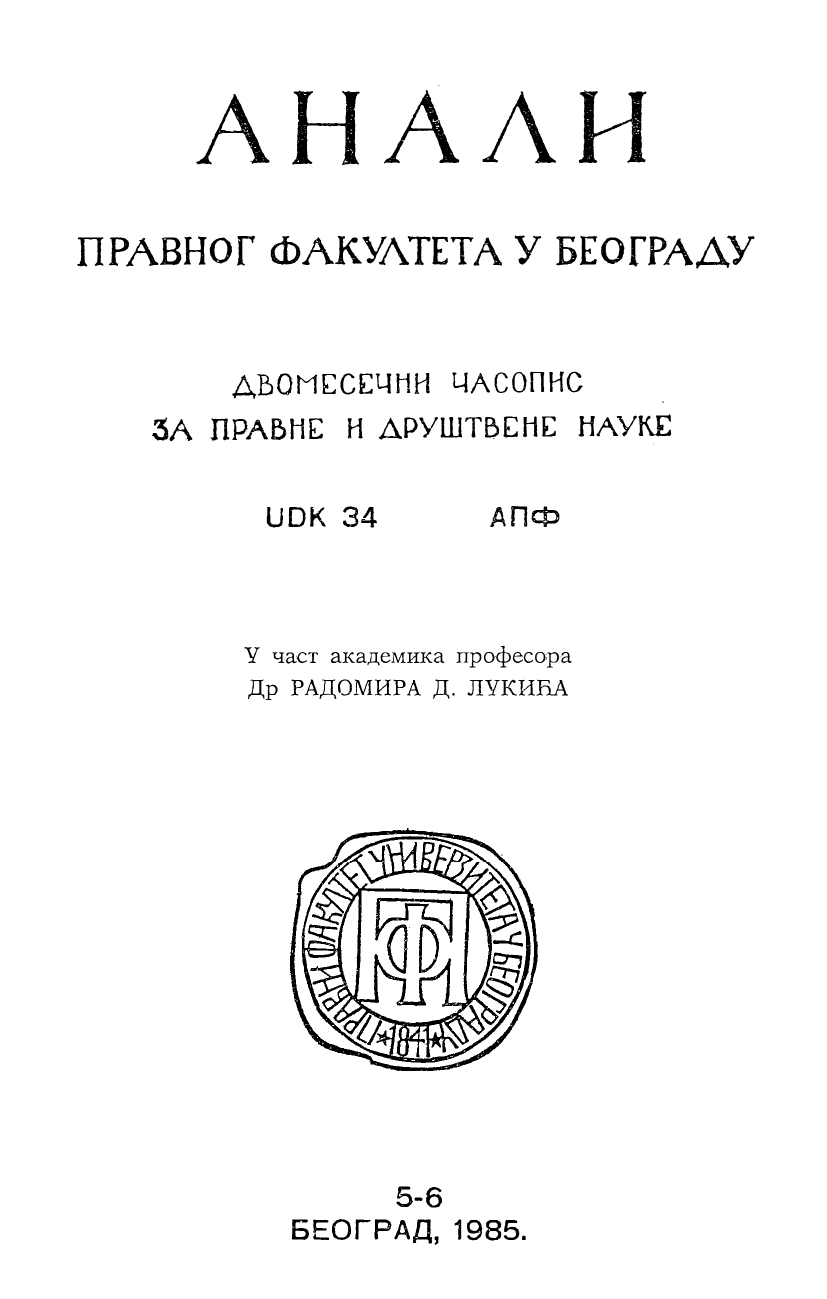ДРЖАВНА И КОЛЕКТИВНА СВОЈИНА У НАШОЈ ПРИВРЕДИ
STATE AND COLLECTIVE OWNERSHIPS IN OUR ECONOMY
Author(s): Miroljub LabusSubject(s): Economy, Law, Constitution, Jurisprudence, Business Economy / Management, Financial Markets
Published by: Правни факултет Универзитета у Београду
Summary/Abstract: The author approaches in this article the problem of social ownership from the historical-economic point of view. The term (»social ownership« includes all those foams of property (ownership) which took place in reality within the social sector of economy. These are, namely: state ownership and collective or group ownership. Individual ownership is derived out of thèse forms. Although in a formal-legal sense the state ownership is rather narrowed down, it is in fact and in terms of economics considerably emphasized. This is achieved by means of a series of state powers in the field of regulation of economic relations; these powers, namely, impose positive and negative limits to the property rights of collectives of workers. Instead of the principle on abolishing state ownership, one has to accept the principle of its transformation on the principle of .the self-management market economy. Along these lines the author proposes a way of that transformation as well as the areas where this should be effected. Collective ownership is formally regulated by law through the right of work and right of disposing of socially-owned means, but it is not explidtely recognized as a separate form of social ownership. By applying economic analysis, the author tries to prove the existence of collective ownership which contains many traditional properties of exclusive use and disposing of property in the joint interest of the members of work collectives. In such a way in practice tire basic principle is disturbed on the socialisation of economic effects of socially-owned means. Wherefrom a conclusion on the need of transformation of the collective ownership. The author sees that need in such an ownership system which would ensure to the work collectives the status of independent and market-oriented subjects, followed by explicitly determined limits in tennis of use and disposing of property. These Limitations should be introduced in order to realize the general interest. Their most significant economic form should ibe the payment of price for the use of socially-owned means.
Journal: Анали Правног факултета у Београду
- Issue Year: 33/1985
- Issue No: 5-6
- Page Range: 623-630
- Page Count: 8
- Language: Serbian

